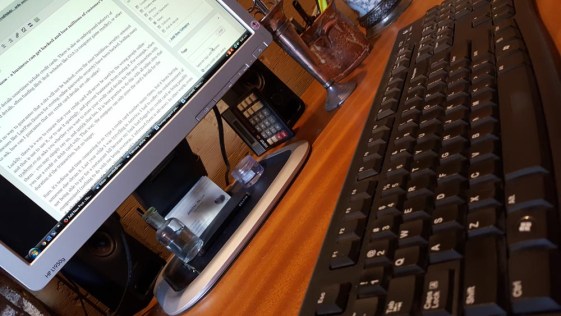Add life to old computers

By Matt Bentley
Many people are wondering how to reduce their dependence on Chinese goods and services, including their computers.
They have been prompted by revelations that the Chinese government knew about Covid-19 as early as November 2019, mounting evidence of WW2-style concentration camps holding 1-3 million Muslims in Xinjiang, and the recent news that 800 New Zealanders are being tracked by the Chinese government.
Cheap is cheap, as they say, but the cost at this point is to health and morality.
For computers there’s no easy answer. Most computer components or products are produced entirely or in part in China, with both Apple, Google and other major tech companies heavily invested in the Chinese tech infrastructure. The supply lines to and from China run so deep that at this stage it would take a war to disrupt them. Add to that the fact that most of the world’s rare earth production (magnets, etc) come from China and it’s hard to distance the tech industry from the abusive power structure in place there.
So what can you do? Well, the four ‘R’s can help you: Re-use, Repair, Repurpose and Recycle. All four of these reduce income to China. Re-use is easy: computers as a whole have not progressed significantly in terms of performance since 2010. We reached a brick wall in terms of how fast electrons could be pushed and changes since then have been largely architectural. Which means a computer from 2020 may only be around 50% faster than one from 2010 in terms of raw CPU (central processing unit) power. But solid state drives (SSD) can easily be used to upgrade existing systems and make them significantly faster, because SSDs are roughly 10 times faster than regular mechanical drives. So upgrading your hard drive becomes a cheap and effective alternative to a new computer, as well as a good safety measure since hard drives have an average lifespan of about 6 years.
In terms of repair, system components such as hard drives, memory, power supplies or motherboards in computers may fail but can usually be replaced. If they can’t, the second-hand market is overstocked on computers as little as five years old (usually from businesses upgrading their stock), so if you want to increase your reuse of computers you can get a second hand machine and optionally replace the hard drive with an SSD. Surplus computers can also be repurposed by tech-savvy individuals as backup servers, media centers for your tv, or educational tools. Kids can learn a lot from taking apart and putting back together old computers with the supervision of a knowledgeable adult.
Lastly we reach recycling, for which there are many outfits in the Waikato. Most will repurpose or on-sell computer equipment when able or strip them for scrap metal when that isn’t possible. I am partnering with local IT recyclers to provide second-hand computers which have been rigorously tested and checked, but still provide modern performance via SSD drives, as an alternative to new computer purchases. It’s not much, but anything one can do to reduce our dependence on China helps the world at large at this stage.
- Matt Bentley is the computer repair guy at Bentley Home PC Support. Email Matt here or phone 021 134 8576.


